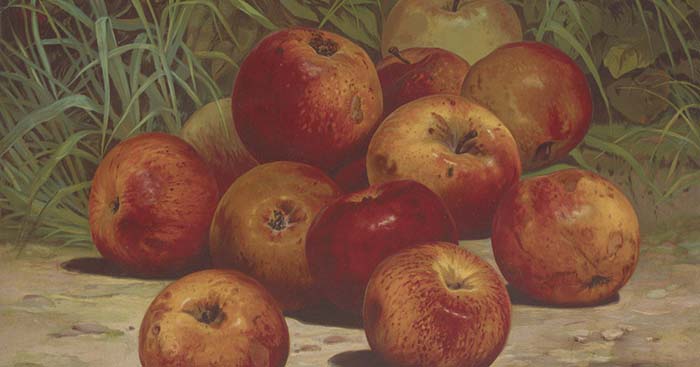In the fairy tale by the Brother’s Grimm, Little Snow-White is conceived in Midwinter when her mother wishes for a child who has skin as white as snow and hair as black as ebony 1. This would put her birth right around the first day of autumn. And on astronomical terms we’d call this the Autumnal Equinox where day and night—white and black—approach balance.
Equivocating on the Equinoxes
Of course, despite the name equinox (which literally means ‘equal night’), day and night are not exactly equal on these days of the year. It all depends on the latitude of the observer. The closer to the equator you are, the further your day of equal day and night will be from the equinox. Though, even then, equinoxes measure the time of sunrise and sunset, not the time of day and night. Sunlight shines before the technical ‘sunrise’ begins. And twilight shines even after the upper edge of the Sun dips below the horizon 2.
‘Fall’ Is Better on the Merits than ‘Autumn’ in Every Way
Autumn, of course, is the season between summer and winter. But we didn’t always have a set word for it in English. Spring and autumn went through quite a few name changes over the centuries at the whims of agricultural and linguistic influences. Some of the earlier instances include “lent and harvest-tide” and “spring of the leaf and fall of the leaf” 3.
Though the British overwhelmingly prefer autumn to the American-favored fall, HW Fowler, that arbiter of all that is English, begrudgingly admitted back in 1908:
Fall is better on the merits than autumn, in every way: it is short, Saxon (like the other three season names), picturesque; it reveals its derivation to every one who uses it, not to the scholar only. 4
Fall is not only a more literal and easily understood term when compared with the Latin-derived autumn, but it’s just so beautiful, you know?
The Real Johnny Appleseed
And what better way to celebrate that beauty than like Snow White herself with glistening apples with blood-red cheeks? Personally I think there’s no better way to begin the fall than with the eating of an apple. And there’s an abundance of apple options available for autumn—hard cider 5, mulled cider 6, boiled cider 7, switchel 8. But as it happens, ol’ Johnny Appleseed (whose birthday is September 26th) would probably prefer you consume the hard stuff.
You see, most eating apples are grown from trees produced from grafting (that is, splicing two trees together). But the real-life John Chapman thought this practice was cruel and traumatic to the trees. So when he donned his tin pot hat and set out to spread his seed across the American frontier, Chapman began his orchards from seedlings which typically produce a hardier stock of sour, bitter apples only suitable for cider 9.
Mooncakes and the Mid-Autumn Festival
Of course, some people feel that Johnny Appleseed was nothing more than an eco-terrorist who introduced an invasive species to the New World. Well, alright then…. How about rather than celebrating the apple, you could celebrate the fall as the Chinese do with the Mid-Autumn Festival which pays tribute to the Moon (rather than the Sun as the equinoxes do) 10. During the Mid-Autumn Festival, it is traditional to munch on tasty little mooncakes 11 in tribute to the moon goddess, Chang’e.
However you choose to celebrate this September—Sun or Moon, apple or mooncake, fall or autumn—one question remains: What the f*** does ba-dee-ya mean? 12
- Grimm, Jacob & Wilhelm | “Little Snow-White” | Grimm’s Fairy Tales | 1812
- “Equinox: Equal Day and Night, Almost” | Time and Date AS
- Fischer, Andeas | “‘Sumer is icumen in’: the season of the year in Middle English and Early Modern English” | Studies in Early Modern English | 1994
- Fowler, HW | “Americanisms” | Chapter 1: “Vocabulary” | The King’s English | 1908
- At Burning Degrees | “The History of Cider in the United States” | Food52 | 2014
- Wright, John | “How to make mulled cider” | The Guardian | 2011
- “Boiled Cider and Cider Jelly of New England” | Slow Food USA
- Staples, Arthur | “A History of Switchel” | The Old Farmer’s Almanac | 2016
- Geiling, Natasha | “The Real Johnny Appleseed Brought Apples—and Booze—to the American Frontier” | Smithsonian Magazine | 2014
- Kelly | “The Origins and History of China’s Mid-Autumn Festival” | China Highlights | 2018
- Kelly | “Chinese Mooncakes — Symbols, Flavors, Regional Varieties” | China Highlights | 2018
- Charnas, Dan | “The Song That Never Ends: Why Earth, Wind & Fire’s ‘September’ Sustains” | NPR | 2014

